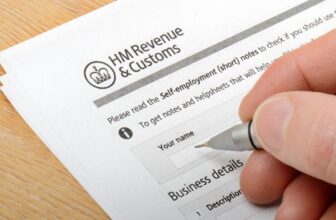
Understanding and managing your tax obligations is paramount for any business owner. As a dog walker in the UK, you’ll need to register as self-employed with HM Revenue and Customs (HMRC) if you haven’t already done so.
Registering as Self-employed
We have a post which explains the process: How to Register as a Sole Trader.
The Deadline for Filing Your Tax Return is 31st January
Self-employed individuals are required to complete a Self Assessment tax return annually. This form declares your income and expenses, allowing HMRC to calculate your tax liability. The tax year in the UK runs from 6th April to 5th April the following year, with the filing deadline typically on 31st January e.g.
For the tax year ending 5th April 2024, the tax deadline is 31st January 2025.
Submit your tax return as soon as you can. Don’t leave it until the last minute. If for any reason you miss the deadline, HMRC will impose a fine: currently £100 for filing up to 3 months late and excalating thereafter.
Tax-deductable Expenses
Keep abreast of tax-deductible expenses specific to dog walking. These may include:
- Mileage or vehicle expenses
- Home office costs (if applicable)
- Equipment and supplies
- Insurance premiums
- Advertising and marketing expenses
- Website costs
Consider setting aside a portion of your income regularly to cover your tax bill. The amount will depend on your earnings, but a general rule of thumb is to save 20-30% of your income for taxes.
If your annual turnover exceeds the VAT threshold (currently £85,000 as of 2023), you’ll need to register for VAT. This involves charging VAT on your services and submitting regular VAT returns to HMRC.
National Insurance Contributions: Securing Your Future
As a self-employed dog walker in the UK, you’re also responsible for paying National Insurance contributions (NICs). These contributions are crucial as they affect your entitlement to certain state benefits, including the State Pension.
There are two types of NICs for the self-employed:
- Class 2 NICs: A flat weekly rate for those earning above a certain threshold.
- Class 4 NICs: A percentage of your profits above a set amount.
It’s essential to be aware of the Class 2 NIC threshold. For the 2023/24 tax year, if your profits are £6,725 or more a year, you’re required to pay Class 2 NICs. However, if your profits fall below this threshold, you have the option to pay voluntary contributions.
Paying voluntary Class 2 NICs can be advantageous, especially if your income fluctuates from year to year. Each year you pay NICs counts as a qualifying year towards your State Pension. To receive the full State Pension, you typically need 35 qualifying years on your National Insurance record.
If your profits are below the threshold and you choose not to pay voluntary contributions, you may miss out on building up your qualifying years. This could potentially impact your State Pension entitlement in the future.
To make voluntary contributions, you can contact HMRC directly. They can provide you with the current rates and guide you through the process. It’s worth noting that you can usually only pay voluntary contributions for the past six years, so it’s advisable to stay on top of your NIC status each tax year.
When considering whether to make voluntary contributions, weigh the cost against the potential long-term benefits. If you’re unsure, consulting with a financial advisor or accountant can help you make an informed decision based on your individual circumstances.
Remember, your National Insurance record doesn’t just affect your State Pension. It can also impact your eligibility for other benefits, such as Maternity Allowance or contribution-based Employment and Support Allowance. Therefore, maintaining a consistent NIC record can provide a valuable safety net for your future.
By understanding and managing your National Insurance obligations alongside your other financial responsibilities, you’re not just running a successful dog walking business – you’re also investing in your long-term financial security.
Hire an Accountant
Given the complexities of tax law, it’s often beneficial to consult with a qualified accountant. They can provide tailored advice, ensuring that you claim all eligible deductions, and help you navigate any changes in tax legislation. Shop around. A dog walker’s finances ought to be fairly simple and if you present your figures, income and expenditure clearly, the cheaper it ought to be. Look to pay around £150 -£200 for an annual tax submission. Keeps all receipts as proof of your expenditure. The accountancy fee itself will be tax-deductable.
In Conclusion
Tax management is essential for the success of your dog walking business. By staying informed about your tax obligations and submitting your tax returns on time, you will ensure that you will stay in the Taxman’s good books.
#UKSelfEmployed #TaxTips #SmallBusinessUK



